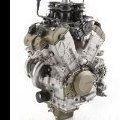single phase vs. 3 phase need explanation
-
Similar Content
-
- 20 replies
- 1,040 views
-
- 36 replies
- 2,359 views
-
- 6 replies
- 621 views
-
What do YOU need? 1 2 3 4 42
By RidersDiscount,
- 1,031 replies
- 116,849 views
-
- 1 reply
- 913 views
-




Recommended Posts
Join the conversation
You can post now and register later. If you have an account, sign in now to post with your account.